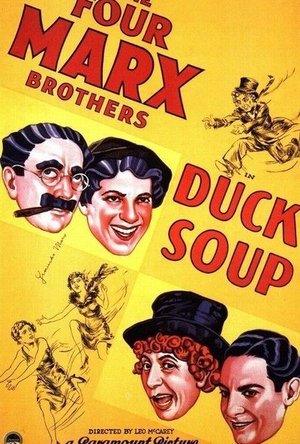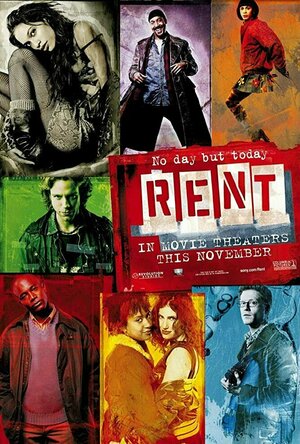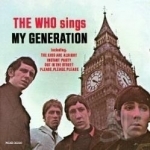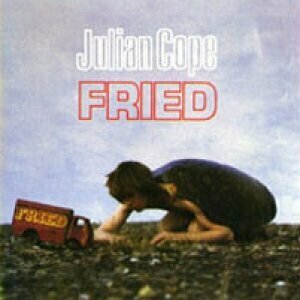Phillip McSween (751 KP) rated Duck Soup (1933) in Movies
Jun 29, 2020
Acting: 10
Beginning: 10
Characters: 10
Main character Rufus T. Firefly (Groucho Marx) is absolutely hilarious. He has quips for days and he’s always doing something to liven up a scene. The other characters, while good, get lost in the greatness of his funny antics.
Cinematography/Visuals: 10
Numerous setpieces abound here which keeps the movie fresh. The movies’s consistent change of scenery and large visual spectacles propels Duck Soup to almost passable heights. I can appreciate a movie with a constant change of pace, especially older films.
Conflict: 3
I spent a decent amount of this movie trying to figure out just what exactly was going on. The conflict never seemed strong enough for me to think the stakes were worth it. It was clear the focus was more on the comedy aspect rather than driving the story.
Entertainment Value: 8
Memorability: 3
Pace: 10
Plot: 7
Resolution: 5
The ending was meh and that’s me being generous. It was essentially a compounding of the story as a whole which totally lost steam for me towards the back half of the movie. it felt like, by the time we reach the end, the writer forgot what initially made the story great in the first place.
Overall: 76
When you don’t really know what’s going on right off the nose, it makes it hard to settle into the story. Duck Soup does a lot of things rights. However, a solid main character and grandiose scenes aren’t quite enough to mask the fact that the movie falls just shy of being good. Not terrible, but definitely not great.
BankofMarquis (1832 KP) rated Rent: Filmed Live On Broadway (2008) in Movies
Jul 10, 2020
The 1990's brought us a "rock musical" that focused on a global pandemic set against the backdrop of social protesting and racial injustices (sound familiar), this musical is Jonathan Larson's RENT.
Following (loosely) the plot of the 1896 opera LA BOHEME, RENT tells the tale of disaffected artists trying to live and love (and make rent) while living their lives the way they wish to live it. Writer Jonathan Larson (who passed, suddenly, the day before previews began) created a powerful, rock driven, story that is poignant, sad and hopeful all at the same time. The original Broadway production Iwhich I am bragging that I saw 2x with the original cast) brought such talent as Jesse L. Martin, Anthony Rapp, Taye Diggs and Idina Menzel to the forefront.
But...skip the film version of this musical (starring most of the original cast) that came out in 2005. It is purfunctuary and lifeless. Instead, seek out the 2008 RENT: FILMED LIVE ON BROADWAY. Like Hamilton, this is a filmed version of the stage show and is able to capture the power and emotion that only live theater can provide.
The cast in this production is outstanding - with the standout being (no surprise) a young Renee Elise Goldsberry (Angelica Schulyer in Hamilton) who shines brightly as Mimi.
Like Hamilton, Rent showcases the power - and purpose - of live theater. A place that I cannot wait to go to again in 2021.
Letter Grade: A-
8 stars (out of 10) and you can take that to the Bank (ofMarquis)
Butch Vig recommended track My Generation by The Who in Who Sings My Generation by The Who in Music (curated)
James Dean Bradfield recommended Fried by Julian Cope in Music (curated)
The Food Lover's Garden: Growing, Cooking, and Eating Well
Book
Grow it, cook it, eat it! From the vegetable patch to the dinner table Put off by the...
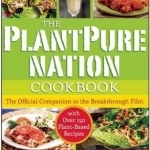
The Plantpure Nation Cookbook: The Official Companion Cookbook to the Breakthrough Film...with Over 150 Plant-Based Recipes
T. Colin Campbell and Kim Campbell
Book
A revolution has begun...From a creative team that includes the producer and writer of Forks Over...
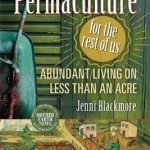
Permaculture for the Rest of Us: Abundant Living on Less Than an Acre
Book
Many of us want to increase our self-sufficiency, but few have access to the ideal five sunny,...
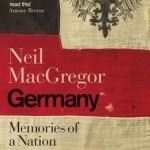
Germany: Memories of a Nation
Book
From Neil MacGregor, the author of A History of the World in 100 Objects, this is a view of Germany...
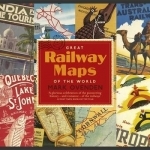
Great Railway Maps of the World
Book
From Mark Ovenden, the author of London Underground by Design and Metro Maps of the World, comes...
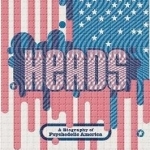
Heads: A Biography of Psychedelic America
Book
Heads: A Biography of Psychedelic America uncovers a hidden history of the biggest psychedelic...
